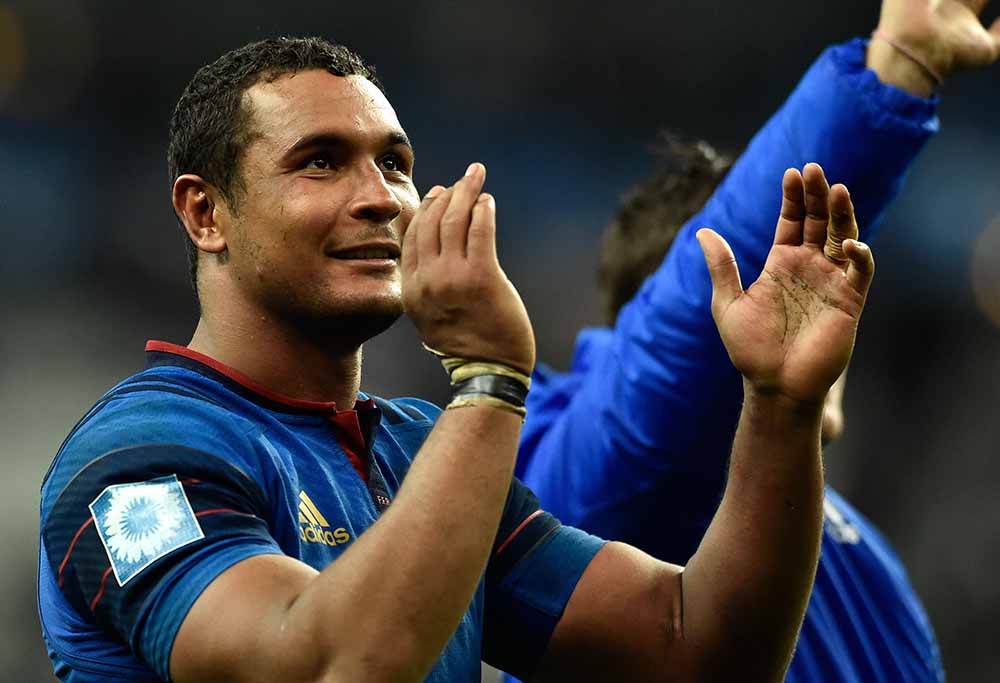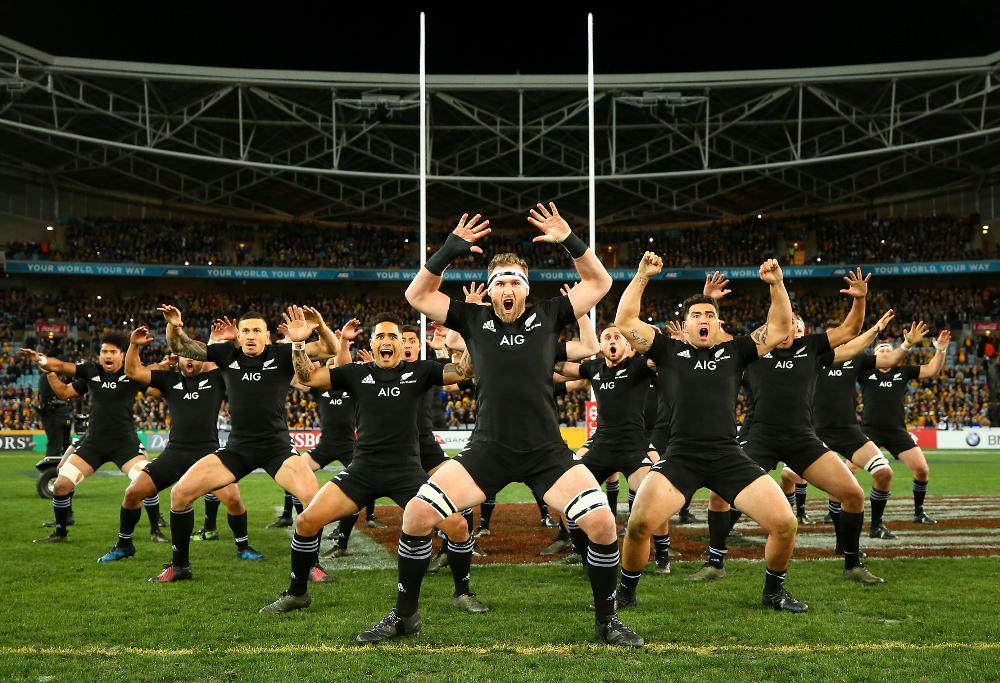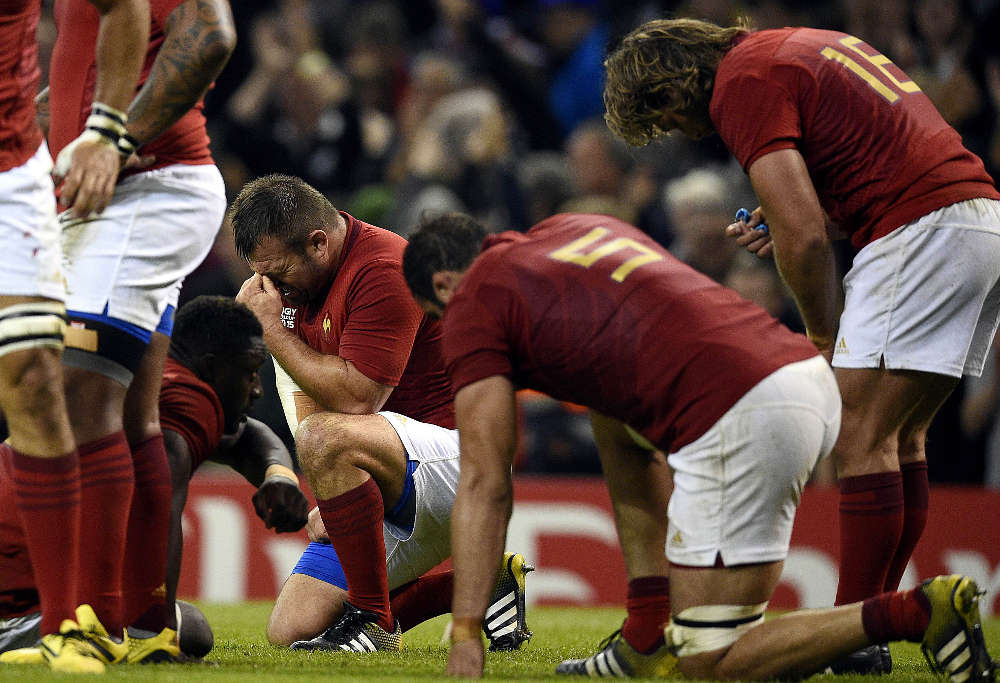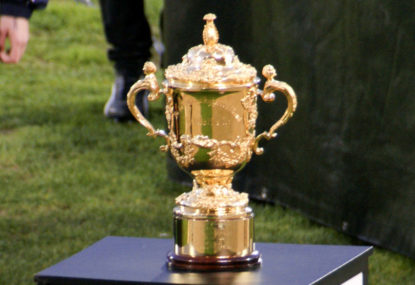According to the French, the only way to “help safeguard international rugby’s future” is to grant them the hosting rights for the 2023 World Cup.
On the surface this is one of the most arrogant statements I’ve read in a long time, but it does highlight one of the major issues the global game is facing. The fact the French union has offered an extra £30 million ($A50 million) over and above the expected tournament fee is particularly concerning.
I guess we should be thankful for small mercies – at least the offer was made publicly instead of behind closed doors. I wonder how Ireland and South Africa felt about France’s offer and if either of them has upped their bids in an attempt to stay in the running.
Italy withdrew their bid to host the 2023 Rugby World Cup after Rome’s mayor, Virginia Raggi, put an end to the city’s bid to host the 2024 Olympics. Federazione Italiana Rugby president Alfredo Gavazzi said, “We are aware that we have missed a fantastic opportunity to further embed our values and our sport in the Italian social fabric, but we have to recognise that as of now there are no grounds to continue this journey”.
But will there ever be another opportunity for Italy to host the Rugby World Cup? Italy isn’t a monied union, and rugby isn’t a major sport in Italy – in fact, rugby is ranked the 10th most popular sport in Italy, lower than the likes of water polo (5th) and wrestling (6th). So would their government be willing to help them to the extent needed to make another bid?
Now France has stated that a successful bid to host the 2023 World Cup “would help in attempts to stop its Top 14 clubs luring southern hemisphere players to Europe”.
So let me get this right: they’ll only curtail the Top 14 clubs if they get the bid, even though Claude Atcher, the manager of France candidacy, has publicly acknowledged the damage this competition is doing through the clubs luring southern hemisphere players “on lucrative contracts“.
Atcher suggests that if the rules aren’t changed, then “in five years or ten years all South African, Australian and New Zealand players will play in France, in England”.
I take issue with this statement. New Zealand players are lured north after retirement from international rugby or if they have too many other players ahead of them in their favoured position or if they’re not in consideration for a place. The New Zealanders currently playing in the northern hemisphere have not had an impact on the All Blacks.
It might not be that way for every country, but we’re blessed with depth, and we owe that to the effort and dedication that has gone into developing the sport at the grassroots level. So I disagree with Atcher when he suggests all New Zealand players will play in France and in England. That’s quite a huge generalisation to make!

(Image: AFP Photo / Lionel Bonaventure)
Is he suggesting New Zealand Rugby will stop working at ways of how to keep our best players here? Or is he suggesting that the lure of the black jersey will one day end and not be a motivating factor for players? This statement shows how little he knows about global rugby.
I’m quite happy New Zealand doesn’t allow offshore players to play for the All Blacks; our depth ensures that such a rule doesn’t affect the national team. New Zealand has “600 professional players offshore and 38 played for other countries in the 2015 World Cup”, but New Zealand Rugby “pays the salary of the top 150 players and that is why they retain the core of their best players”.
I for one like the system we have in place. I don’t begrudge players going overseas one bit – in fact, I would be a hypocrite if I did as I’m working overseas myself – but I believe the system we have in place has enabled our success, so why would we want to mess around with it?
New Zealand has “a blanket, categoric, non-negotiable ruling that only players contracted to the New Zealand rugby union can be picked for the All Blacks. There are no exceptions, but there are two previous examples – Sonny Bill Williams and Luke McAlister – who were granted permission to be picked for the All Blacks despite not playing in the preceding domestic competition”.
And then in 2008, the ‘sabbatical clause’ was introduced. However, Steve Tew is on record saying that as the market is competitive, they’re “constantly reviewing what [they’re] doing, and if circumstances changed, then [they’d] be foolish not to think about it“. So while the powers that be in New Zealand Rugby are happy with the present situation, it could very well change in the future.
The system Rugby South Africa has in place allows selection to the national team for overseas-based players only “if they have 30 Springbok caps under the belt”. Australia have “loosened their stance to open eligibility to offshore players who have seven years’ Test experience and 60 caps”.
According to Greg Peters, former general manager of Unión Argentina de Rugby, “Pre-2007 they all played offshore and went overseas very young”; however, the inclusion of the Jaguars into Super Rugby saw many of the offshore players return to Argentina.
Samoa, Fiji and Tonga are the worst affected and “select their players as and when possible, which is generally only during Rugby World Cups”. England “previously picked French-based players but currently don’t allow it”, but they do have an “in exceptional circumstances” clause which allows the coach “to pick whoever he likes as long as he can make a case to justify it”. France, Ireland and Wales have no restrictions in place.

(Image: Mark Nolan/Getty Images)
According to Atcher, “We have a responsibility to support the development of rugby in the world because, if we don’t do anything, in five to ten years you will have two, three to four teams on the same level and that’s all, and then rugby will die”.
Personally, I don’t see France as rugby’s saviour. Perhaps if the French Rugby Federation were as concerned with the health of the global game as they’re implying, then they would be putting more effort into developing the game in their own country. How can the country with arguably the best club competition in the world be only eighth in World Rugby rankings?
Austin Healey suggested that “French rugby is set up to almost actively hinder the national side” due to having the “least amount of access and control over their players” of any tier-one nation. In 2016 the Top 14 final was on 24 June and the preseason for the national team started in July.
“Some of their guys are playing 40 games a year where England play in the low 30s and Ireland’s in the high 20s,” he said. The number of games being played and the toll that has on the players leaves “no time to be doing speed work or working on their skill”.
Former head coach Philippe Saint-Andre blames the Top 14 for the inconsistency of French rugby: “The Top 14 has a budget of €150 million ($A225 million) and the FFR is €100 million … The league is much bigger than the federation”.
Saint-Andre speaks of how wonderful the Top 14 is, boasting some of the world’s best players and packed stadia, but “afterwards you watch some starting teams with two or three French players in the starting XV or you are struggling to find wingers [for the national team] because 70 per cent of the wings are from overseas it starts to be a big problem”. As Saint-Andre asserts, “We need our young players to play and develop their game”.
The Top 14 is guilty of undermining the national team by not releasing players, as was the case with the 2016 tour of Argentina in which they lost the first Test 30-19, and by recalling players during the designated ‘rest weeks’. Saint-Andrew would like to see an agreement between the French Rugby Federation and the Top 14 along the same lines that Rob Andrew devised with the Premiership. Namely, “the selection of home-grown talent and limited internationals’ game time”. France have tried to implement such rules in the past but they failed. Hopefully with or without a successful Rugby World Cup bid they will have more success in the future with any such implementation.

(AFP PHOTO / FRANCK FIFE)
After the 62-13 defeat to New Zealand in the 2015 Rugby World Cup Steve Hansen said, “there are so many foreigners playing in their teams and leagues here that they’re taking the chance off local talent to grow and develop and so they limit who they can select at international level”. He likened what’s happening to rugby in France to the English football league – the league might be the best in the world, but it doesn’t reflect in the national team.
He asserts that the New Zealand model works because domestic rugby supports the international team. “If you want to be successful at international rugby, you have to be united from the top to the bottom, and I’m not sure they are up here”.
Compare the New Zealand model to that in the northern hemisphere. According to Iain Payten, “In Europe clubs exist to win premierships and test rugby sits separately. Clubs pay the players and they generally couldn’t give a stuff about whether England or France win the Six Nations”.
And there’s the rub. For the million/billionaire owners, owning a rugby team is the “new luxury yacht: a vanity plaything,” Payten says. How is that ever going to be good for world rugby? I would like to think that the purchase of a rugby club is due to a love of rugby, but the must-win-at-all-costs (that is, buy the best players in the world) philosophy is nothing more than ego-driven or instant gratification. It’s not about the sport; it’s about the win, and if the national team suffers as a result, who cares.
I for one think World Rugby should care!
Shouldn’t the responsibility lie with World Rugby? Surely as the governing body of the global game, they’re ultimately responsible not just for the development of the sport but also for the preservation of it. Why not bring in salary caps for the players? Or limit the number of foreigners a club team can have? France tried to introduce a rule to do this, but the clubs found loopholes which they exploited. Shouldn’t World Rugby ensure there are no loopholes?
Atcher named New Zealand, South Africa, Australia, and Italy as unions who showed losses in their financial reports. He added that while Wales, Scotland and Ireland are not flush, they are at least “balanced in terms of budget”, but stated it was only England and France who made a profit. I get that England and France are the richest unions, but surely the right to host the Rugby World Cup should not be granted on wealth alone – is that not contrary to the whole development philosophy of World Rugby?
I see the French offer of the additional £30 million as a very dangerous precedent. If World Rugby accept it, what does that mean for the future of Rugby World Cups? Will the cup only ever be staged by those few countries that can afford to pay more than the asking price? I sincerely hope not, but I fear the answer is yes.
































































































